Opinions
Importance Of Girl Child Education!!
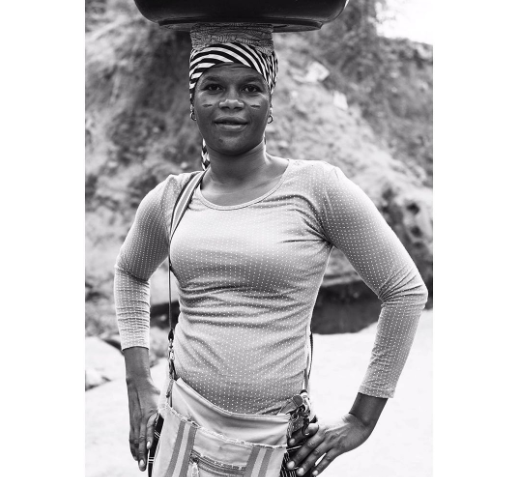
“Train a male child today and you train one, train a female child today and you train all.”
This is a saying that has been made popular over a couple of decades. Interestingly, this is a saying that cannot be over-emphasized as the education of a female child is just as important if not much more than that of a male child. As far as western education has spread. It is saddening to still note that a lot of women in several parts of the world especially in developing and underdeveloped areas are still been deprived of very basic education. Some who are privileged to go through primary education are quickly sent off to their husband’s houses rather than be encouraged to further their education.
Education is simply a process of accelerating learning. It is the acquisition of knowledge and skills. According to the oxford learner’s dictionary, Education is a process of teaching, training, and learning especially in schools or colleges to improve knowledge and develop skills. Educating a female child helps the young child to understand the world. It prepares and gives them an insight into how the world is and how it operates and It teaches them how to stand up for themselves.
Recent statistics show that 760 million people in the world are illiterates and two-thirds are females, 85.8% of women are illiterate, 32 million girls of school age are not in school, and in developing countries, 1 in 10 girls before the age of 15 are married. It is a harsh reality that in 2019 girls are still been deprived of basic education.
Educating a girl child has been discovered to be the willpower of many developed countries of the world. An educated female contributes greatly not only to reproductive health but also to the individual, society, the economy, and the world. In 2012, former president Barack Obama said “The future must not belong to those who bully women. It must be shaped by girls who go to school and those who stand for a world where our daughters can live their dreams just like our sons.”
The entire human population constitutes about 60 percent of women. The importance of educating at the very least, half of this percentage cannot be over-emphasized. Women being the specie responsible for the childbearing need to be educated about their reproductive health so as to reduce maternal/child mortality. We all know that the home is a child’s first place of learning, training women ensures the transfer of this education to any children they bear thereby reducing the rate of illiteracy in the world which can lead to early marriage of the girl child in some underdeveloped countries. These children may be forced to endure one form of abuse or the other not only when married, but sometimes when they are still under the care of their parents’ examples of which can be seen as children hawking on the streets. These children may be kidnapped, abused, or even involved in accidents. Training the girl child can also ensure continuous sustainable development in various aspects of our economy.
Reasons why women should be educated.
· Reduces poverty
Women are by nature industrious. Education provides a woman with vital ideas which she can translate into wealth. If a woman has access to basic education it will provide her with the opportunity to participate in economic and business activities to help combat poverty.
· Decreased maternal/child mortality
The more educated a woman is, the more aware she is of maternal/ reproductive health. In rural and underdeveloped areas, the rate of maternal and child mortality is relatively high. When a woman is educated, she is likely to survive maternal mortality and prevent child mortality.
· Early marriage and abuse
When a female is not educated, she has a tendency of been abused and forced into early marriage. An educated woman will know how to defend and prevent herself from any form of abuse and stand up for herself when being forced into early marriage against her will.
· Economic growth
The more educated women produced, the more they engage in economic activities which will positively affect and increase the gross domestic product (GDP).
· Reduces inequality
With access to education, women will be bold to speak for their rights and that of their families. More voices will be heard and action will be taken toward female education and more emphasis will be placed on gender equality. With this, women will become relevant to their families/homes, community, and even to the growth of the nation.
· Career opportunities
Education provides women with career opportunities. This career opportunity will distinguish her from undertaking menial jobs like hawking, petty businesses and even being a domestic worker or housewife.
· Contribution to democratization
With females children being allowed to go to school, nations will experience democracy at its best because educated women will be concerned about the growth and wellbeing of their society by this, and they will be keen to participate and eager to contribute greatly to effective and efficient running and governance of the society.
· Reduce terrorism/insurgency
Researchers have discovered that educated women are not more likely to aid terrorism as men with the same level of education as them. This is a huge advantage of female education. Female education will lead to an increase in security and assist in fights against insurgency.
· Safe sex
Educating a female produces women that are fully informed about sexually transmitted diseases which will make them less endangered to diseases such as HIV/AIDS, syphilis, chlamydia, genital herpes, gonorrhea, and so on, and will also help to reduce the spread of these diseases.
· Family planning
Educating women will reduce the fertility rate as they are the specie responsible for childbearing. Women who are not educated are more likely to have many children due to illiteracy and lack of information about family planning unlike their educated counterparts; they are well informed about family planning and they tend to have fewer children that they can cater to.
Female education is imperative to ensure the sustainable development of any society as women play crucial roles in their homes and social sphere.
WOMEN SHOULD BE EDUCATED AND EMPOWERED!!!
Entertainment
Top 10 Underground Rappers in Atlanta
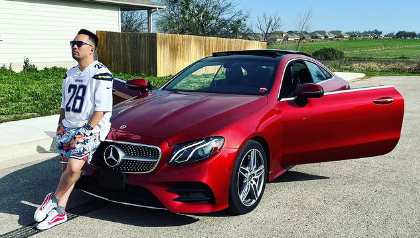
Atlanta has long been known as a hub for innovative and influential music, with a rich history of producing some of the most groundbreaking artists in hip hop. In recent years, a new generation of rappers has emerged in the city’s underground scene, blending elements of trap, punk, and rock to create a sound that is raw, authentic, and uniquely Atlanta. Here are the top 10 underground rappers in Atlanta that you need to know.
Young Nudy
One of the most prominent figures in Atlanta’s underground rap scene is Young Nudy. Originally from East Atlanta, Nudy gained notoriety with his 2016 mixtape “Slimeball,” which featured collaborations with fellow Atlanta rapper 21 Savage. Nudy’s music is characterized by its raw energy and unfiltered lyrics, which explore the realities of life in the inner city. His latest album, “DR. EV4L,” is a testament to his lyrical prowess and unique sound, blending elements of trap, drill, and punk rock to create an intense and emotional listening experience.
Lil Gotit
Lil Gotit is another rising star in Atlanta’s underground rap scene. Hailing from the city’s Zone 6 neighborhood, Gotit has been making a name for himself with his unique style, which blends trap music with elements of punk and rock. Gotit’s music is known for its aggressive beats and dark, moody lyrics that touch on themes of drugs, violence, and street life. His latest album, “Top Chef Gotit,” is a powerful testament to his talent and his ability to push the boundaries of what is possible in hip hop.
Yung Mal
Yung Mal is a rapper from the Westside of Atlanta, known for his gritty, street-inspired lyrics and his ability to craft compelling hooks. He first gained attention with his 2017 mixtape “1.5 Way or No Way,” which showcased his unique flow and his ear for melody. Since then, he has continued to build him following with a string of well-received projects, including “Iceburg,” “6 Rings,” and “1.5 Way or No Way 2.”
Hoodrich Pablo Juan
Hoodrich Pablo Juan is a rapper from Atlanta’s Zone 6 neighborhood, known for his smooth flow and his laid-back, melodic style. He first gained attention with his 2017 mixtape “Designer Drugz,” which showcased his ability to craft catchy hooks and memorable verses. Since then, he has continued to build him following with a string of well-received projects, including “BLO: The Movie,” “DMV,” and “Hood Champ.”
Lil Keed
Lil Keed is a rapper from Atlanta’s Southside, known for his unique flow and his ability to blend elements of trap, R&B, and rock music. He first gained attention with his 2018 mixtape “Trapped on Cleveland 2,” which showcased his emotive lyrics and his ability to create anthemic hooks. Since then, he has continued to build him following with a string of well-received projects, including “Long Live Mexico,” “Trapped on Cleveland 3,” and “A.
Kenny Mason
Kenny Mason is a rapper from Atlanta’s Westside, known for his introspective lyrics and his ability to blend elements of rap, rock, and alternative music. He first gained attention with his 2019 project “Angelic Hoodrat,” which showcased his unique perspective and his gift for storytelling. Since then, he has continued to build him following with a string of well-received projects, including “Angelic Hoodrat: Supercut” and “AngelDust.”
2FeetBino
2FeetBino is a rapper from Atlanta’s Eastside, known for his charismatic personality and his infectious, catchy hooks. He first gained attention with his 2018 mixtape “No More Mr. Nice Guy,” which showcased his ability to create party anthems and his natural talent for making people dance. Since then, he has continued to build his following with a string of well-received projects, including “Broken Dreams,” “A Story Never Told,” and “Southside to Hollywood.”
BRS Kash
BRS Kash is a rapper from Atlanta’s Westside, known for his energetic flow and his ability to create infectious hooks. He first gained attention with his breakout single “Throat Baby,” which went viral on TikTok and helped him to gain a massive following. Since then, he has continued to build his brand with a string of well-received projects, including “Kash Only,” “Hurtin’ My Wrist,” and “Kash App.”
Yung Baby Tate
Yung Baby Tate is a rapper and singer from Atlanta, known for her unique blend of hip-hop, R&B, and pop music. She first gained attention with her 2018 project “BOYS,” which showcased her ability to create catchy, radio-friendly anthems that still retained a sense of authenticity and individuality. Since then, she has continued to build her following with a string of well-received projects, including “GIRLS,” “After the Rain,” and “IRL.”
Grip
Grip is a rapper from Atlanta, known for his introspective lyrics and his ability to blend elements of hip-hop, jazz, and spoken word poetry. He first gained attention with his 2017 project “Porch,” which showcased his gift for storytelling and his ability to capture the nuances of life in the inner city. Since then, he has continued to build him following with a string of well-received projects, including “Snubnose,” “HALO,” and “I Died for This!?”
Atlanta’s underground rap scene is full of talented and innovative artists, pushing the boundaries of what is possible in hip-hop. These 10 rappers represent the best of the best, each bringing their unique voice and perspective to the table. Whether you’re a fan of trap, punk, rock, R&B, or any other genre, there’s something for everyone in Atlanta’s thriving underground rap scene.
Entertainment
Afrobeats: The Global Sound Taking Over the Music Industry
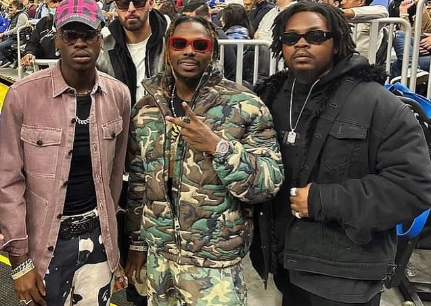
Afrobeats, also known as Afro-pop, is a music genre that originated in West Africa in the early 2000s. It is a fusion of traditional African rhythms, highlife, and hip-hop music. The genre has gained popularity globally in recent years and has become a dominant sound in mainstream music, particularly in Europe and the United States.
Origins of Afrobeats
Afrobeats originated from Nigeria, specifically from Lagos, the country’s commercial capital. The genre’s pioneers include Fela Kuti, King Sunny Ade, and Ebenezer Obey, who popularized African rhythms, particularly the Yoruba and Afrobeat sounds.
Afrobeats evolved in the 2000s with the emergence of a new generation of artists like D’banj, Wizkid, and Davido. These artists fused African rhythms with hip-hop, reggae, and R&B to create a unique sound that appealed to a wider audience.
Characteristics of Afrobeats
Afrobeats is characterized by its infectious rhythm, upbeat tempo, and danceable melodies. The music often features a blend of African percussion, guitar riffs, and electronic beats, with lyrics sung in a mix of English and African languages.
The music also emphasizes the importance of dance and often comes with a signature dance move that accompanies the song. For instance, the song “Zanku” by Zlatan Ibile comes with a dance move known as the Zanku legwork.
Global Popularity
Afrobeats have gained significant popularity outside of Africa in recent years. The genre’s popularity started to spread globally in 2012 when D’banj’s hit single “Oliver Twist” became a chart-topping song in the UK and the United States. The song opened up a global market for Afrobeats and paved the way for other African artists to break into the international music scene.
In recent years, Afrobeats has enjoyed massive success on the international scene, with artists like Burna Boy, Wizkid, and Davido collaborating with international stars such as Beyoncé, Drake, and Chris Brown. These collaborations have helped to put Afrobeats on the world stage and bring the genre to a global audience.
The Future of Afrobeats
The future of Afrobeats looks bright, with the genre continuing to gain popularity across the globe. In 2020, Wizkid’s album “Made in Lagos” became the first Afrobeats album to reach the top 10 on the US Billboard 200 chart.
The popularity of Afrobeats is also evident in the number of Afrobeats-inspired events and festivals that are held globally. The annual Afro Nation festival, which started in 2019, is a three-day festival that celebrates Afrobeat music and culture. The festival has been held in Portugal and Ghana, attracting fans from around the world.
Importance Of Afrobeats
- Promotes African culture: Afrobeats is a fusion of traditional African music, Western pop, and hip-hop. The genre’s sound is infused with African rhythms, melodies, and languages. By celebrating African culture, Afrobeats help to preserve and promote the continent’s diverse cultural heritage.
- Economic growth: The rise of Afrobeats has been a catalyst for economic growth in Africa. The genre has created employment opportunities for artists, producers, sound engineers, and other professionals in the music industry. The genre’s popularity has also led to the growth of music festivals and concerts, which attract thousands of music lovers and generate revenue for local businesses.
- Social impact: Afrobeats has become a voice for the African youth, addressing issues such as political corruption, social inequality, and poverty. The genre’s lyrics often reflect the struggles of everyday life in Africa, inspiring hope and motivation among the youth.
- Global recognition: Afrobeats has gained popularity beyond the shores of Africa, with the genre’s biggest stars performing in major cities around the world. The genre has also attracted collaborations with international artists, which has helped to promote African culture to a global audience.
- Unity: Afrobeats has become a unifying force in Africa, bringing together people from diverse backgrounds and nationalities. The genre’s popularity has transcended borders, promoting a sense of pan-Africanism and solidarity among Africans.
- Inspiration: Afrobeats has inspired a new generation of African musicians and artists, who have embraced the genre’s sound and fused it with their own unique styles. The genre has also inspired the emergence of new African fashion styles and dance trends.
One of the defining characteristics of Afrobeat is its complex rhythm. It is based on traditional African rhythms, with a strong emphasis on percussion instruments like the conga, bongo, and shekere. The rhythm is often polyrhythmic, meaning that multiple rhythms are played at the same time, creating a layered and intricate sound. The bass guitar is also an important component of Afrobeat, providing a deep and groovy foundation for the rhythm section.
Another distinguishing feature of Afrobeat is its political and social commentary. The genre emerged during a time of political and social upheaval in Nigeria, and its early pioneers used their music as a platform to address issues like corruption, poverty, and inequality. Fela Kuti, one of the most influential figures in Afrobeat, was known for his political activism and his willingness to speak out against the Nigerian government. His music was a powerful tool for social change, and his lyrics continue to resonate with audiences today.
Afrobeat also incorporates elements of traditional African music and culture, such as call-and-response vocals and African dance styles. The lyrics often contain references to African culture, history, and spirituality, reflecting a deep connection to the African continent and its people. The use of African languages and dialects in the lyrics further emphasizes the genre’s cultural roots.
The incorporation of Western music styles into Afrobeat is another factor that sets it apart from other genres. The genre’s pioneers were heavily influenced by jazz and funk, and these influences can be heard in the complex harmonies and melodic structures of the music. The use of horns, keyboards, and other Western instruments adds a layer of sophistication to the sound, creating a unique fusion of African and Western music.
The performance style of Afrobeat is a key element of its uniqueness. Live performances are often energetic and engaging, with large bands and dynamic stage shows. The musicians are known for their improvisational skills, and solos are a common feature of the music. The audience is often encouraged to participate in the performance, with call-and-response vocals and dance breaks.
Afrobeat is a unique genre of music that combines traditional African rhythms, Western music styles, political and social commentary, and elements of African culture and spirituality. Its complex rhythm, political and social significance, cultural roots, incorporation of Western music styles, and engaging performance style are all factors that contribute to its distinctiveness. As Afrobeat continues to gain popularity around the world, it is clear that its unique sound and cultural significance will continue to make it a beloved and important genre of music.
Opinions
9 Health Benefits Of Coconut Water You Should Know

What are the health benefits of coconut water? Here are 9 Health Benefits Of Coconut Water you should know about!
Growing up, I was told I would become intellectually dull if I drank coconut water so I avoided it like a plague. Being a child, I never wondered why all the cups of coconut water seemed to disappear soon after into the stomachs of adults around and the fact that they never went dull afterward. I just believed what I was told. Of course, I have long since come to know the truth about coconut water and I never fail to drink it each chance I get.
Coconut water is that whitish liquid found in the center of young, green coconuts. Not only is this juice delicious and refreshing, but it is also a major thirst quencher and comes packed with a lot of beneficial nutrients.
Each young coconut contains amazing nutrients like potassium, magnesium, b-complex, zinc, vitamins, amino acids, cytokinins, and copper. It is also low in calories and rich in antioxidants useful for ridding your body of toxins.
Here are Some Reasons You Should Take Coconut Water
1. Keeps You Rehydrated after an Exercise
Coconut water has a high electrolyte composition which makes it a good choice for replacing fluid lost through sweating or vomiting. It is readily absorbed into your body so one or two cups taken after a vigorous exercise session will rehydrate your body and give you an energy boost.
2. Lowers Blood Pressure
Taking coconut water regularly will also help you manage your blood pressure if you sure suffer from a high one as stated by recent research published in the West Indian Medical Journal in 2005.
Coconut water is high in vitamin c, potassium, and magnesium, key nutrients that help regulate blood pressure. It also contains arginine, an important element needed for relaxing your blood vessels and promoting blood circulation.
3. An Excellent Cure for Hangovers
Hangovers are caused in part by dehydration, which is why you feel funny when you have one. Since coconut water rehydrates you, it will have you feeling better in no time.
4. Eliminates Stomach Upset
If you are experiencing an upset stomach, then you should take one or two cups of coconut water. This natural health-enhancing juice has the ability to heal stomach upset caused by an inflamed stomach lining as it contains tannins, an important element known for reducing inflammation.
5. Promotes Weight Loss
Coconut water promotes weight loss and maintenance in that it is low in calories. People who choose to replace their regular high-sugar drinks with coconut water report significant weight loss and maintenance over time.
Coconut water is also high in fiber which will keep you feeling full for longer.
6. It is Beneficial for Pregnant Women
Pregnant women experience a lot of discomforts and sometimes illness during their pregnancy. Some of these include nausea, heartburn, and constipation.
Coconut water is recommended for pregnant women as it aids digestion, which will in turn eliminate heartburn and constipation during pregnancy.
7. It Boosts Immunity
Due to the dense nutrient composition of coconut water, taking it will boost your immunity. The vitamins, lauric acid, and essential nutrients will keep your body fortified to keep away infections.
8. Coconut Water is Anti-aging
Again, the lauric acid and antimicrobial properties of coconut water work on your skin, keeping off infections, wrinkles, and fine lines.
It will also eliminate blemishes, acne, sun-damaged skin, and other skin infections.
9. Revitalizes Damaged Hair
The rich vitamin K and iron content of coconut water work to revitalize your damaged hair, restoring it to its previous healthy state, It will also eliminate dandruff, and hair loss, and treat the dry frizzy scalp.
Coconut water is considered safe and has no known recorded side effects. You can take as much as you want, however, pregnant or nursing women are advised to take this health tonic on the directives of their healthcare professional.
-

 Opinions2 years ago
Opinions2 years agoThe Pains Of Being A Nigerian Part 2 – Manufacturing Sector in a Democratic Nigeria
-
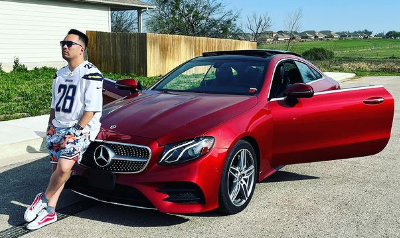
 Entertainment1 year ago
Entertainment1 year agoTop 10 Underground Rappers in Atlanta
-

 Entertainment2 years ago
Entertainment2 years agoTop 15 Slay Queens In South Africa
-
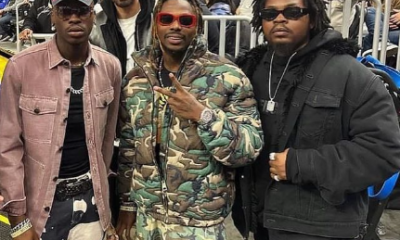
 Entertainment1 year ago
Entertainment1 year agoAfrobeats: The Global Sound Taking Over the Music Industry
-
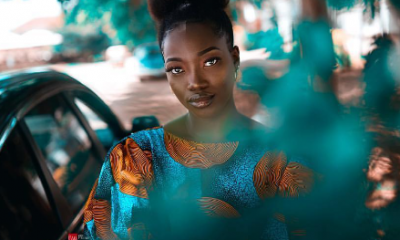
 Opinions2 years ago
Opinions2 years agoHow to Make Money Online as a Woman/Mother/Student
-
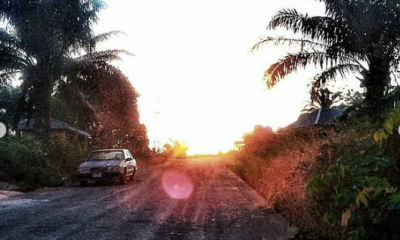
 Opinions2 years ago
Opinions2 years ago9 Health Benefits Of Coconut Water You Should Know
-
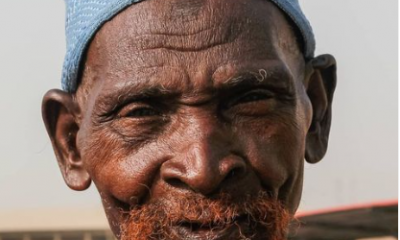
 Opinions2 years ago
Opinions2 years agoDepression In The Society! Causes, Symtoms, Treatment
-
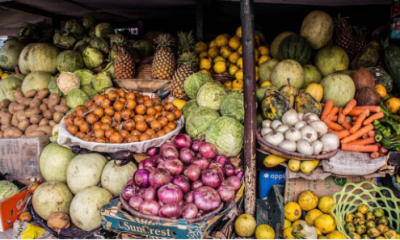
 Opinions2 years ago
Opinions2 years ago7 Basic Health Ethics You Should Know!
